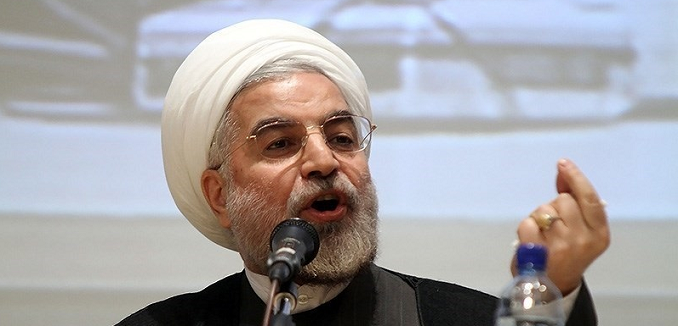Iranian President Hassan Rouhani signed a bill into law on Tuesday designating all U.S. forces in the Middle East as terrorists and declaring the U.S. government a sponsor of terrorism.
The legislation passed the Iranian parliament last week in response to Washington’s decision in April to designate the country’s Islamic Revolutionary Guard Corps-Quds Force (IRGC-QF) a foreign terrorist organization.
The bill specifically targets the U.S. Central Command (CENTCOM), which is responsible for U.S. military operations in the Middle East and Afghanistan.
Rouhani instructed the ministry of intelligence, ministry of foreign affairs, the armed forces, and Iran’s supreme national security council to enforce the new law. It was not immediately clear what impact the decision might have on U.S. operations in the region.
“These two forces [Guards and CENTCOM] that are designated as terrorist groups reciprocally might confront [each other] in the Persian Gulf or any other region,” Reuters quoted Iranian Deputy Foreign Minister Abbas Araqchi as saying.
“The United States will surely be responsible for such a situation,” the Iranian official added.
On April 8, the Islamic Republic’s Supreme National Security Council (SNSC) officially designated CENTCOM in the Middle East and all its affiliates as terrorists. The Council, presided by Rouhani, threatened that Washington will be held responsible for “all consequences of its adventurous action.”
In a statement, the SNSC condemned the U.S. designation of the IRGC-QF as “an illegal and dangerous action” that poses a “major threat to the regional and international peace and security and grossly violates the UN Charter, as well as the rules of international law.”
Rouhani, in a speech on April 9, also attacked the move, saying it resulted from “defeats” the U.S. had experienced against the Islamic Republic. Earlier, Iran’s Foreign Minister Mohammad Javad Zarif called the shift in policy a “misguided election-eve gift” to Israeli Prime Minister Benjamin Netanyahu.
[Photo: Tasnim News Agency / Wikimedia Commons]




